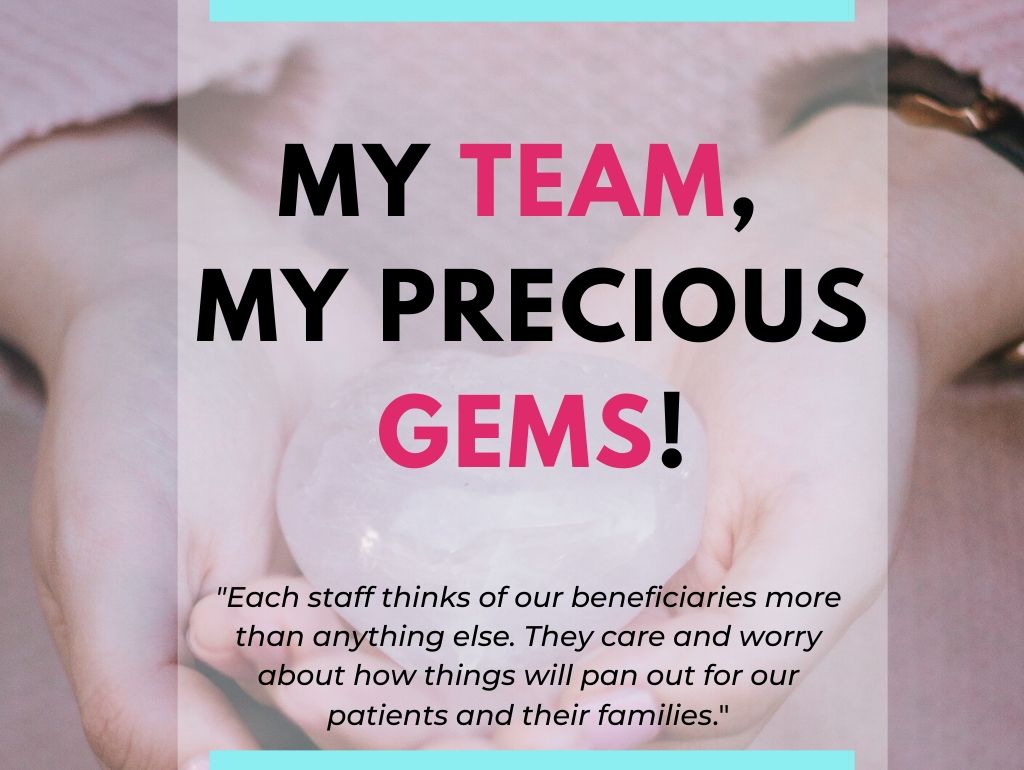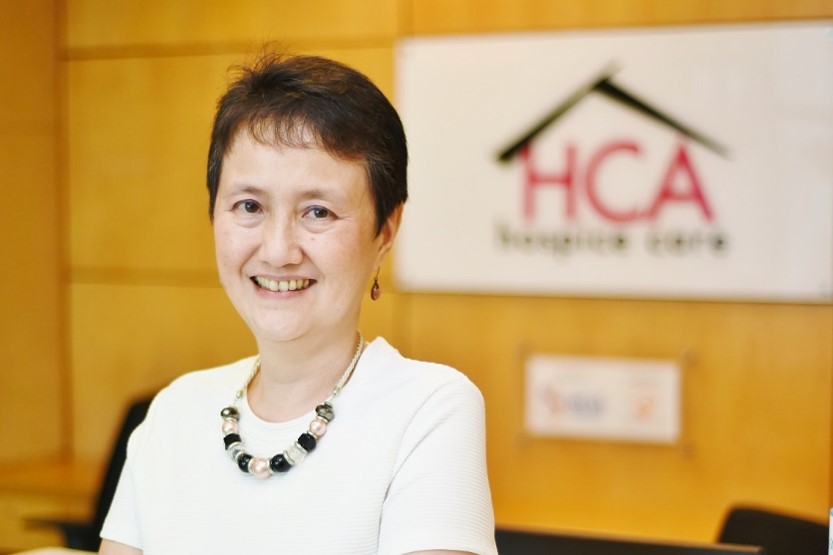
Close


I continue to run my skip level meetings, knowing how important it is to understand ground sentiments. More so during the COVID-19 circuit breaker measures period, when staff are working extra hard in the midst of stringent precautionary measures and morale may be affected. Skip level meetings give me the opportunity to hear directly from the team members without their Heads of Departments present.
Prior to the circuit measure period, I would visit the satellites, Day Hospices and meet with the non-clinical teams face to face. This gives me an opportunity to be closer to the ground, see facial expressions and understand better, the concerns that staff may have. Now, I have to conduct my skip level meetings via online means, but I am happy that I can continue to do so.
What do staff bring up during these sessions? I used to receive feedback and suggestions ranging from printers not functioning properly to requests to use private car hires instead of hailing for taxis, to the possibility of getting fruits for staff every week.
These days, staff ask if they can wear bermudas, instead of long pants while visiting patients, as it is very hot and uncomfortable, when worn with personal protective gear. We tried to accommodate and our home team is now allowed to wear a custom made HCA dri-fit t-shirt, with our official pants, during this period.
They ask if they can eat at the void decks in between visits. While we have provided most information and support to our staff, based on the latest advisories, these information keep changing fast and furiously. What is most difficult is that they sometimes receive conflicting views and advice, from external sources. For example, whilst we have informed our home team that they may have quick meals alone, at void decks or park benches, in between home visits, one ambassador they asked, said they could not. As a result, many of our home team members either skip lunch, eat only a snack while on the go, or have late lunches when they get back home at 4pm, sometimes later.
They also ask if our home hospice patients during their last moments can have visitors. Family members in kindness provided differing views. Some said HCA must issue a letter so that family members can visit their loved one, who is dying, but the correct protocol is that such visits are allowed and should be limited to immediate family members. Family members must observe safe distancing measures of at least being one metre apart and wear masks. The number of visitors at any one time should be kept low. Those who are unwell must not visit. Family members should also perform hand hygiene before and after interacting with the patient. Caregivers should also record the contact details, date and time that the various family members visited, for ease of contact tracing if the need arises.
Some staff ask what the situation was going to be like, post circuit breaker period. HCA is considered an essential service provider and we are a ‘white-listed’ organisation. Home and Day hospice still need to be provided and it is business as usual. Based on current advisories, we will still limit the number of staff coming back to the office, but less onerously. It is currently less than ten people at any time at our HQ, but we will allow slightly more people post circuit breaker.
Yet other staff worried about whether they would still have jobs and some (braver ones) asked if their bonuses would be paid. These are all real concerns in their minds, as they too realise that elsewhere, people were losing their jobs, asked to take no pay leave and companies were closing down. At HCA, we assure them that no one will lose their job because of the current economic situation. Instead our staff are in greater demand.
After each skip level meeting, I realise that no matter what questions the staff bring up, it finally leads back to care for our patients. Each staff thinks of our beneficiaries more than anything else. They care and worry about how things will pan out for our patients with life limiting illnesses and their families. HCA’s staff are really passionate and committed.
Although most of our clinical team members are tired from the stringent precautionary measures they have to take while visiting our patients, their overall morale remains good. Our non clinical team members continue to support the organisation well and happily. Each member of the staff remains committed to serving our beneficiaries with love and dignity. I feel extremely honoured to be working alongside all my precious gems!
Take good care of yourselves everyone!

angie